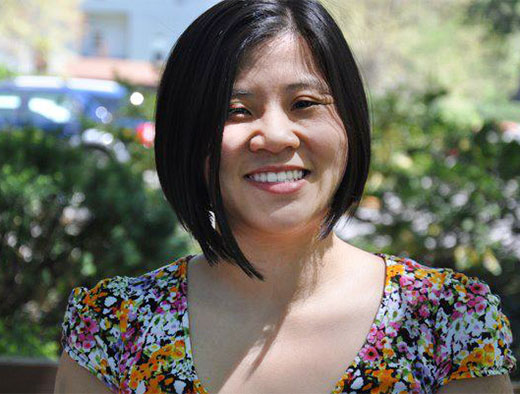Opinion: Rethinking our standards of beauty

Joyce Ng is senior English major and a columnist for the Daily Kent Stater. She can be reached at [email protected].
While spending some time with family friends this winter break, their thirteen and fifteen-year-old teenage daughters bombarded me with music videos from “Frozen.” “Anna is so cute,” they both said again in high voices the fifth time they force fed me “Do You Want to Build a Snowman?” “Of course Anna is cute — she’s a Disney princess,” I thought. I realized I would hardly be able to tell the Disney princesses apart if it weren’t for their hair. They all have disproportionately large eyes, full, defined lips and a slender figure, which are very pleasing to the eye.
Apart from feeling slightly annoyed by the cutesy voice on replay, I also felt peeved by the singular standard of beauty that was being portrayed. I texted one of my friends to tell her that Disney needs to make a fat or ugly princess. Fat and ugly, like many other adjectives used to describe people, are, in fact, subjective perspectives. However, we’ve unfortunately fallen into the grasp of society’s definition of those terms. Having love handles or a double chin is considered “fat,” which somehow inherently means a person is less attractive. And for some reason, a fat or ugly person never deserves to be a Disney heroine or hero — the villains are almost always unattractive.
A few days later, I was looking at a friend’s Facebook profile and derived the appearance of her new boyfriend from it. “Hah, he’s ugly,” I thought with a tinge of pleasure. I’ve always been in slight envy of this friend because she is smart, can play the piano really well, and my high school crush chose her over me — one of those people who has it all. So I gained great satisfaction out of the fact that I thought her boyfriend was ugly. In that moment, I realized what a complete hypocrite I am. This is exactly why Disney doesn’t make fat or ugly princesses. What business do I have feeling indignant about Disney’s singular standard of beauty and worth when I myself make quick judgments about a person’s worth based on that exact standard?
Our minds have been programmed to perceive slim figures, large eyes and full lips as more valuable and pleasurable to look at. Of course, just because something happens doesn’t make it acceptable or healthy. I would like to pose a challenge to all of us to make room in our boxed perceptions of beauty. This doesn’t mean not judging a person based on their physical appearances or thinking that someone has “inner beauty.” This means looking at a person with bushy eyebrows, a protruding chin and a pot belly in the same way one would look at Princess Anna.


